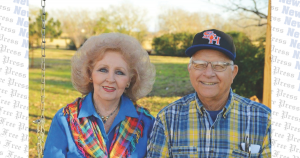
KYLE — Council members may be required to wait a year between serving on the dais and being employed by the city, following a recommendation made at the Kyle Charter Review Commission April 28 meeting.
The commission first began by approving changes to articles 10 and 11 that were recommended at the April 14 meeting.
Toward the end of the previous meeting, city attorney Aimee Alcorn-Reed noted the irregularity of the final two items of article 11, Section 11.11 Election Required and Section 11.12 Contracts Concerning City Property, as they did not seem to coincide with the other sections, resulting in the addition of “and Contracts” to the article title. After discussion, commissioners opted for Alcorn-Reed to bring forward a new location at the April 28 meeting.
Alcorn-Reed ultimately placed it in Article 13 General Provisions since it is a “catch all,” but commissioner Lila Knight noted she preferred Article 1 Incorporation, Form of Government and Powers of the City.
“I think these items are so specific that having it in a miscellaneous section makes the most sense,” said commissioner Hannah Foarde.
The commission chose to table the discussion until article 13 could be reviewed.
All other changes recommended at the previous meeting were approved, followed by discussions of the final articles in the charter.
Article 12 Ethics and Conflicts consists of Ethics Commission, acceptance of gifts, interest in city contract, conflict of interest and political contributions.
“The reason I pointed out 12.01 [Ethics Commission] is because we’ve got some public comments at a council meeting recently — and it got me thinking that this is something the Charter Review Commission might want to talk about — about the way that the members of the Ethics Commission are appointed. The way that they are currently appointed is that each council member appoints one member of the commission, who is then confirmed by majority of council. There’s an argument that this makes the board inherently political because the ability of that commissioner to continue to serve depends on the council member appointing them continuing to serve. Other than this commission that you’re sitting on right now, that’s the only one that we appoint that way,” explained Alcorn-Reed.
Knight stated that she agreed that it was a good idea to address the concern, though she was unsure if Kyle City Council would vote for it. She suggested that the process be done through a raffle, which would mean that residents would apply and, after verification that they met the requirements, a name would be drawn out of those that applied and whoever is chosen would sit in the commission.
Commissioner Diane Hervol suggested that council vote on the commissioners after reviewing applications, but Knight stated that they would simply choose the same person that they would have picked anyway.
“At some point in time, we have to trust the people that we elect and if we can’t, then we can remove them and that’s how the process has to work,” said commissioner David Glickler.
The commission then discussed adding requirements for members of the Ethics Commission to aid in the lack of political interest, but Alcorn-Reed and Glickler stated that it is difficult to convince residents to volunteer their time on boards, committees and commissions, so specifications could add challenges to an already difficult task.
Ultimately, the item was benchmarked for Alcorn-Reed to research peer cities and their requirements and processes to appointing Ethic Commission members, but they did choose to add language that stated preference for those that have experience in administrative, municipal and other government law.
Alcorn-Reed also had clarification concerns for section 12.03: “There’s a section that says no city officer or employee shall have an interest in any contract related to the sale to the city of any land and it does not have a specific exception in cases of eminent domain. So, I live here in Kyle; I’m a city employee. If the city needed part of my property for a road, under this provision, I’m not sure I could sell it to them and that seems a little bit concerning.”
None of the commissioners were able to suggest new language, so the city attorney stated that she will bring back language options at the next meeting.
“Is there anything — and I couldn’t find it in here unless I’ve missed something along the way — that a city council member can or cannot leave the council and then, go work for the city,” asked commissioner Stuart Kirkwood.
According to Alcorn-Reed, in the ethics code, it is stated that council members have to wait two years before handling issues in front of the city, but it doesn’t specifically say that they cannot work for the city for a specific length of time.
“It’s just a perception of: I sit on the council. I’m going to be helpful in creating a job and then, I’m going to get off the council and I’m going to get that job,” Kirkwood said, recommending a year between being on council and working for the city.
The commission recommended adding this provision to the charter in a new section: 12.06.
Article 13 General Provisions, the final article, consists of miscellaneous items, including: oath of office, notice of claim against city, reservation of defenses, settlement of claims, community service organizations, public records, succession, charter review, severability, open meeting compliance and non-substantive revisions.
Alcorn-Reed suggested adding references to state law to Section 13.06 Public Records, while to Section 13.08 Charter Review, she recommended for the commission to reconvene every six years, rather than five, as the council reviews the charter every two years. By changing this to six, the two would line up.
“I think that the citizens would be a little more comfortable if the city council reviewed the charter [every two years] and if an amendment should be considered to a section, appoint a Charter Review Commission,” said Knight.
Glickler was in support of every six years, since it would give ample time for citizens to see if changes made during the previous session of the Charter Review Commission bettered the city.
The commission agreed on six years for the standard meeting and then, an option for an interim session if needed for amendments.
The Kyle Charter Review Commission will next convene May 12.













